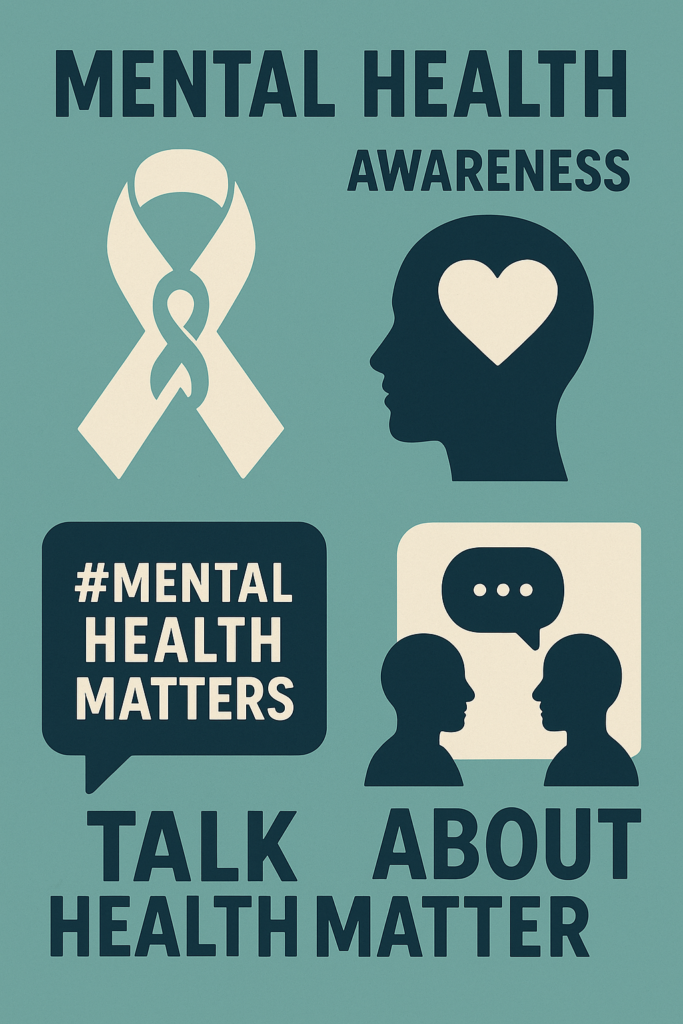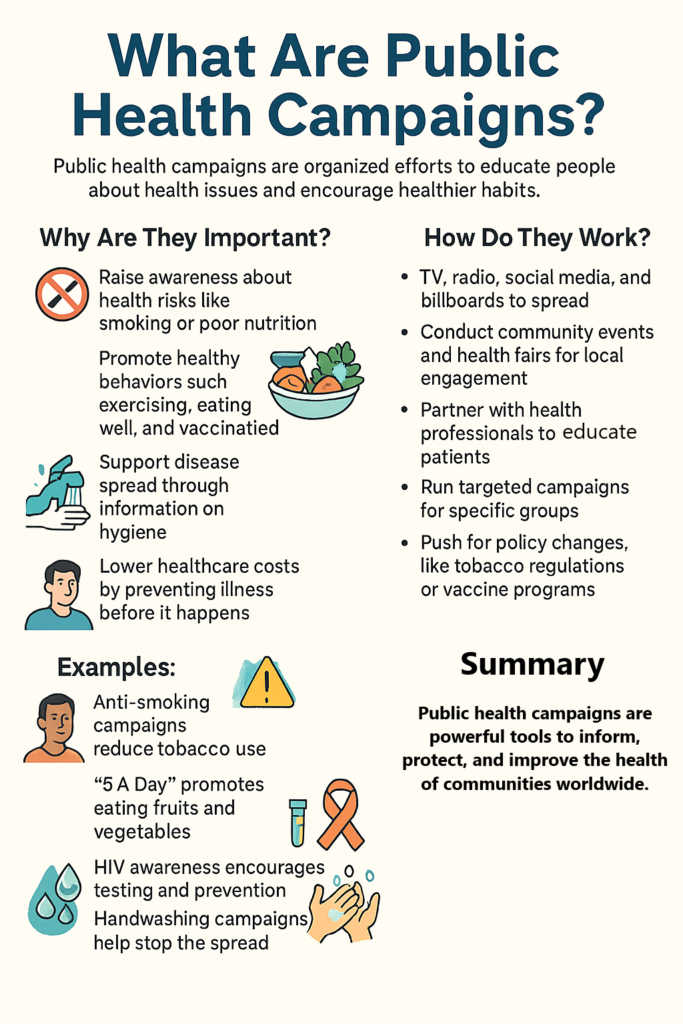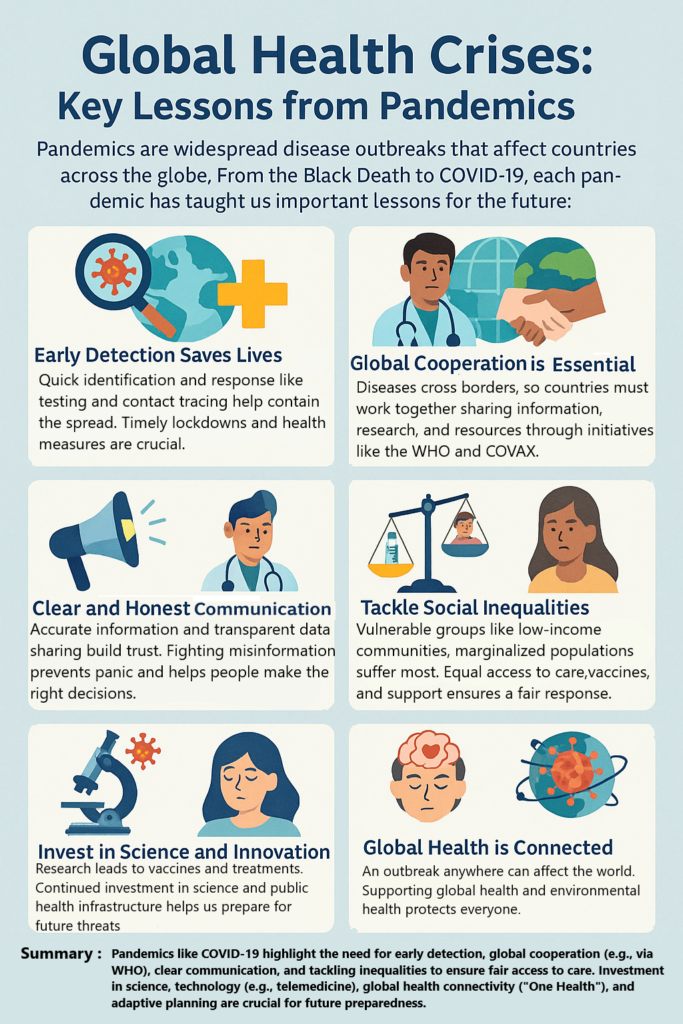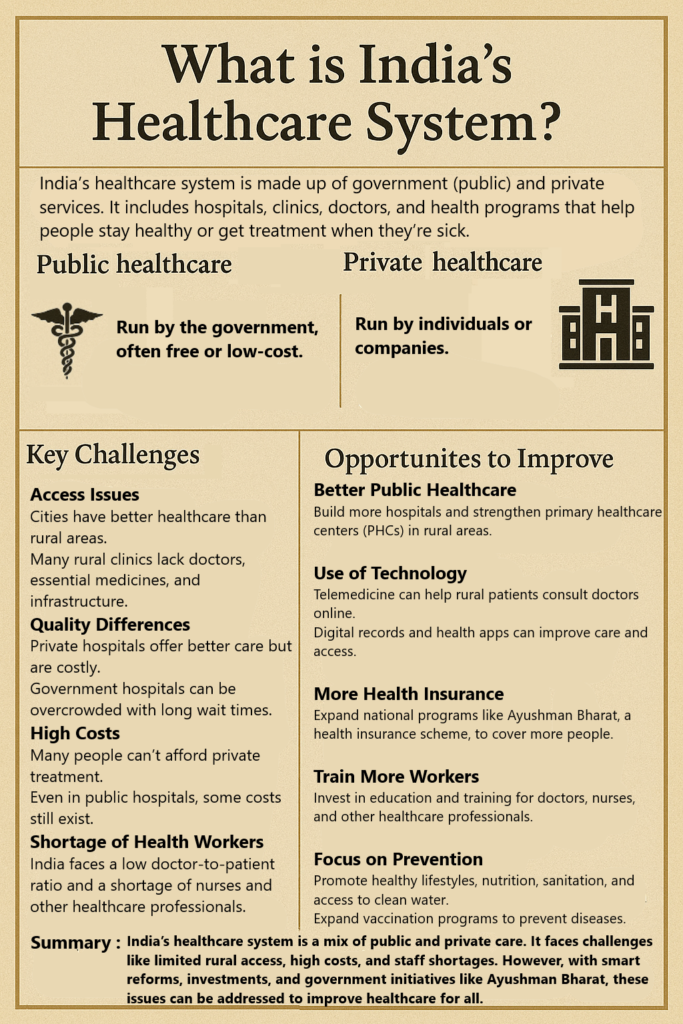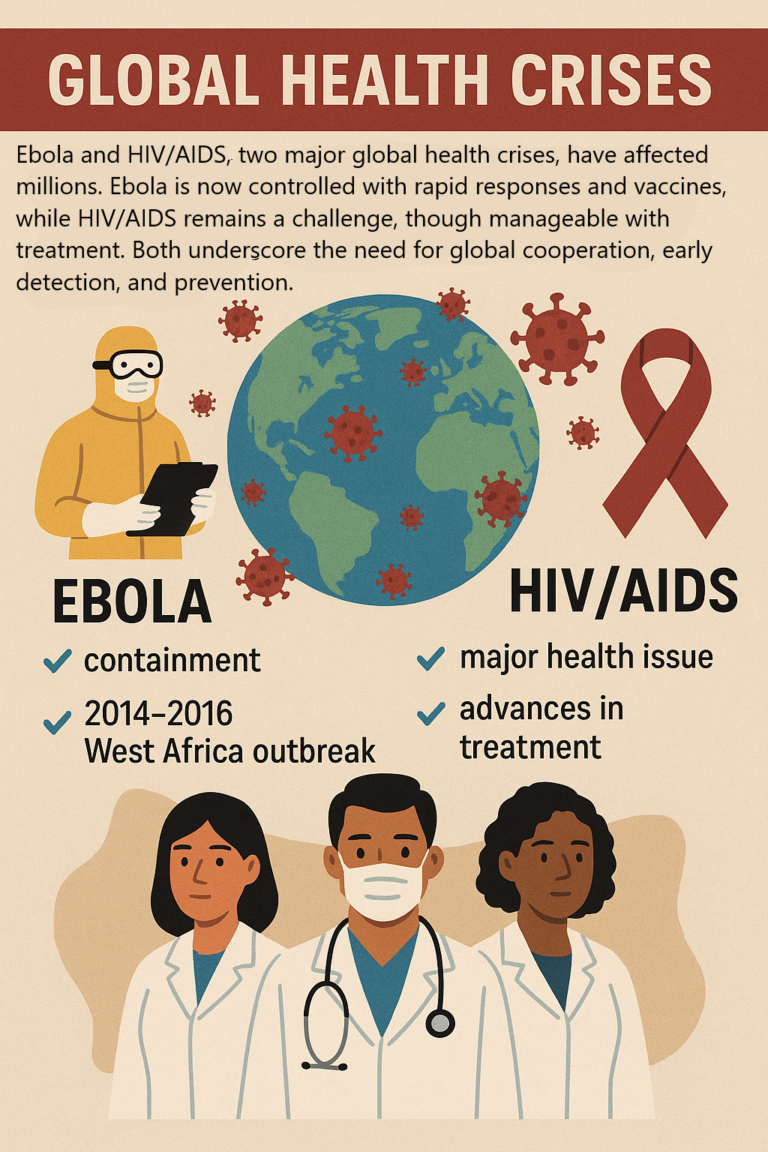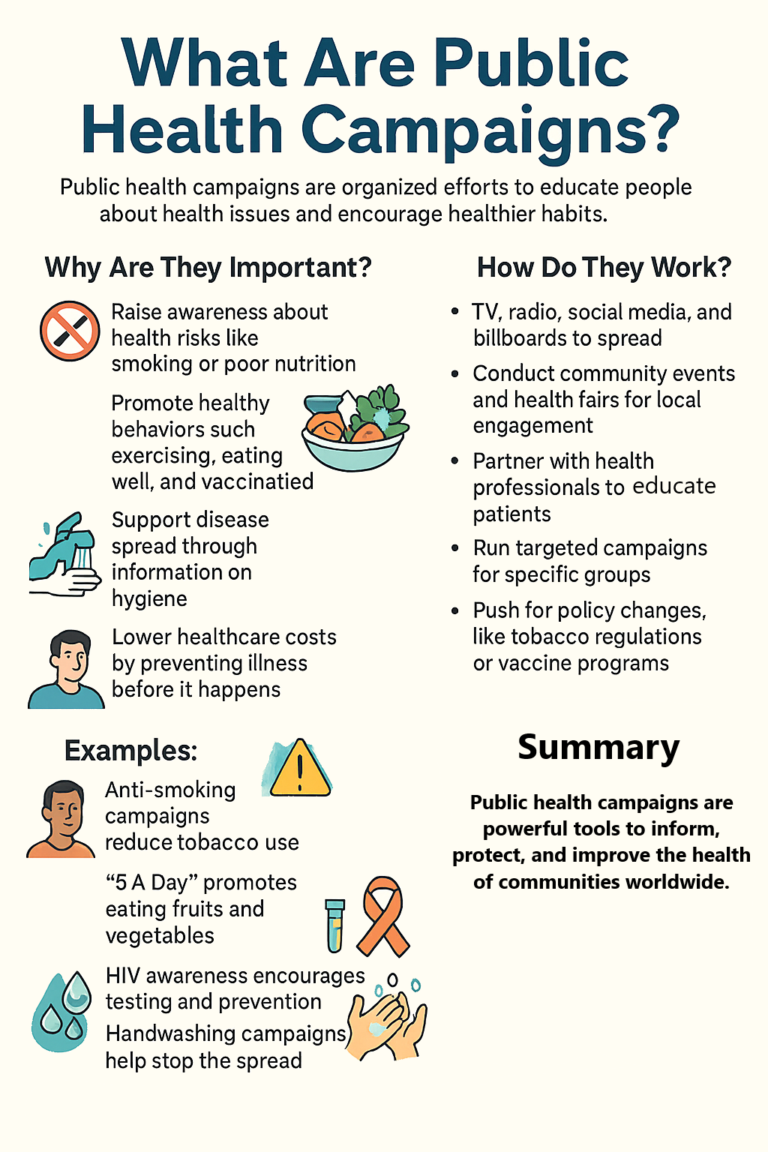What is Health Education?
Health education is the process of learning about how to stay healthy, prevent illness, and take care of your body and mind. It involves teaching people about healthy habits, how the body works, and how to prevent problems related to health.
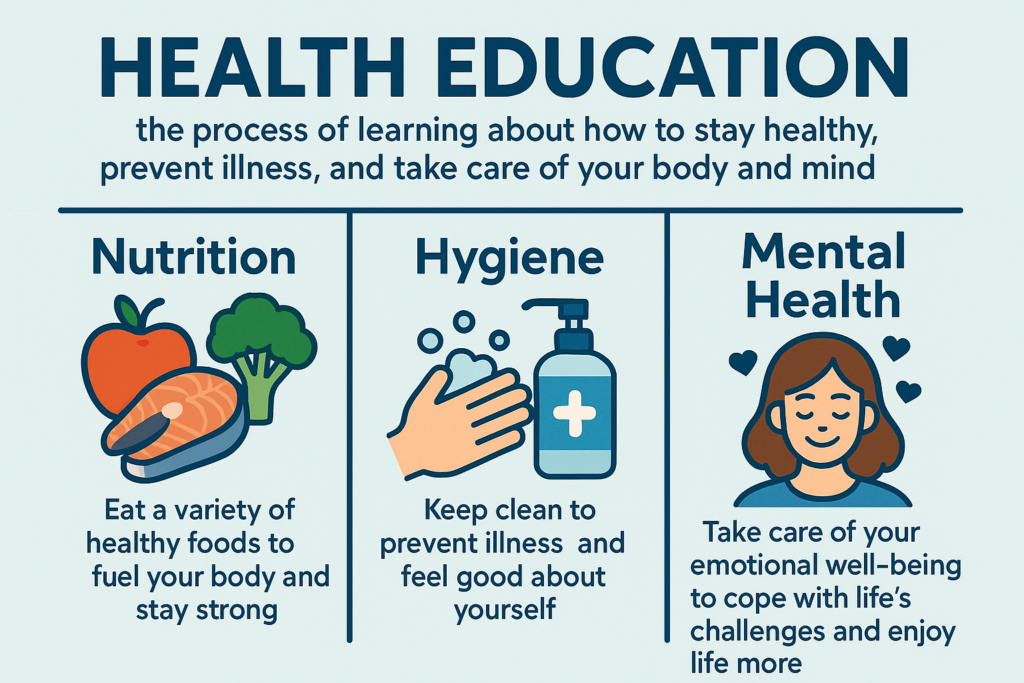
Health education helps you make better choices for your well-being and teaches you important things like eating nutritious food, maintaining good hygiene, and taking care of your mental health.
1. Nutrition (Eating Well)
Nutrition is all about eating the right foods to give your body the energy, vitamins, and minerals it needs to stay healthy. It’s not just about eating enough, but eating the right kinds of foods in the right amounts.
Why is Nutrition Important?
Good nutrition helps you:
- Grow and develop properly
- Stay energized for daily activities
- Fight off diseases and infections
- Maintain a healthy weight and body
What Makes a Healthy Diet?
A balanced diet includes a variety of foods, such as:
- Fruits and Vegetables: These provide important vitamins, minerals, and fiber that keep your body strong.
- Proteins: Foods like meat, fish, beans, and nuts help build and repair body tissues.
- Carbohydrates: Foods like rice, pasta, and bread give your body energy.
- Fats: Healthy fats from foods like olive oil, nuts, and avocados help protect your organs and give energy.
- Water: Staying hydrated is crucial for keeping your body functioning properly.
How to Eat Well?
- Eat a variety of foods: Try to include different colors of fruits and vegetables in your meals.
- Limit sugar and processed foods: Too much sugar and junk food can lead to health problems.
- Eat regular meals: Don’t skip meals. Eating regularly helps keep your energy steady throughout the day.
- Stay hydrated: Drink enough water to help your body perform its daily functions.
2. Hygiene (Keeping Clean)
Hygiene refers to keeping your body clean to prevent illness and infections. It includes washing your hands, brushing your teeth, and keeping your living space tidy. Good hygiene is a key part of staying healthy.
Why is Hygiene Important?
- Prevents the spread of germs: Cleanliness helps keep bacteria and viruses from making you sick.
- Boosts confidence: Taking care of your body makes you feel good and helps you look and feel fresh.
- Improves quality of life: Being clean and healthy allows you to feel better and enjoy life more.
Basic Hygiene Practices:
- Wash your hands: Wash with soap and water before eating, after using the bathroom, and after touching things that might be dirty (like trash or public surfaces).
- Brush your teeth: Brush your teeth twice a day to keep your mouth clean and prevent cavities.
- Shower regularly: Showering keeps your skin clean and removes dirt, sweat, and bacteria.
- Keep your nails clean and trimmed: Dirty nails can hold germs, so it’s important to keep them short and clean.
- Wear clean clothes: Changing clothes regularly helps prevent body odor and skin issues.
- Clean your living space: Regularly cleaning your home or workspace helps prevent the buildup of germs and bacteria.
3. Mental Health (Taking Care of Your Mind)
Mental health is just as important as physical health. It involves your emotions, thoughts, and behaviors, and how you cope with life’s challenges. Taking care of your mental health helps you feel good and deal with stress, anxiety, and other emotional challenges.
Why is Mental Health Important?
- Improves your quality of life: When your mental health is good, you feel happier, more relaxed, and better able to handle challenges.
- Helps you build strong relationships: Being mentally healthy helps you communicate and relate to others in a positive way.
- Supports physical health: Good mental health can lower the risk of illnesses and improve your overall health.
How to Take Care of Your Mental Health:
- Get enough sleep: Sleep is essential for your mind to rest and recharge.
- Exercise regularly: Physical activity can boost your mood and reduce stress.
- Eat nutritious foods: A healthy diet not only benefits your body but also your mind.
- Talk about your feelings: Don’t bottle up emotions. Talking with someone you trust can help you feel supported.
- Relax and manage stress: Taking time to relax and do things you enjoy can help reduce stress. Activities like reading, listening to music, or taking a walk can make a big difference.
- Seek help when needed: If you’re feeling very sad, anxious, or overwhelmed, it’s important to talk to a professional (like a counselor or therapist) who can help.
Putting It All Together: Health Education for a Better Life
Health education teaches you how to take care of your body and mind. By learning about nutrition, hygiene, and mental health, you can make healthier choices and live a better life.
- Good nutrition helps you grow strong and stay energized.
- Good hygiene keeps you clean and prevents illnesses.
- Good mental health helps you manage stress and feel good about yourself.
When you take care of your health, you can enjoy life more, feel better, and prevent a lot of health problems in the future. So, remember to eat well, stay clean, and take care of your mind—because a healthy body and mind are the key to living your best life!
In Summary:
- Nutrition: Eat a variety of healthy foods to fuel your body and stay strong.
- Hygiene: Keep clean to prevent illness and feel good about yourself.
- Mental Health: Take care of your emotional well-being to cope with life’s challenges and enjoy life more.
By focusing on these three areas, you can maintain a balanced, healthy lifestyle.

